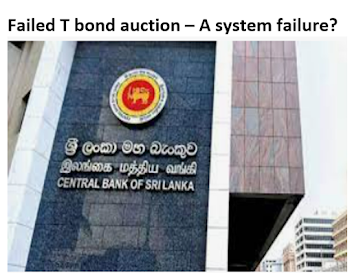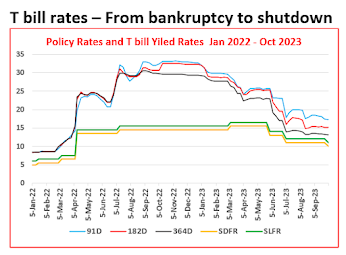Failed T bond auction - A failure of bond issuance system? Let us investigate

According to media reports, the central bank (CB) has rejected all bids received at the T bond auction held on 30 October. Therefore, this short article is to raise concerns whether the rejection of all bids is a new sign of the failure of present T bond issuance system. Present T bond issuance system Present system was introduced in the middle of 2017 by discontinuing the full auction system followed since the beginning of March 2015. Accordingly, the new the system is a so-called hybrid system containing the auction window and post-auction placement window as follows. Auction window - competitive bids received in the electronic auction system where accepted bids carry multi-prices/yields on each fixed coupon bond offered to the auction. Post-auction non-competitive placement window - Bids are received through e-mail from primary dealers whereas the auction weighted average yield is offered for all bids accepted manually on each bond announced for placements immediately after the rele


